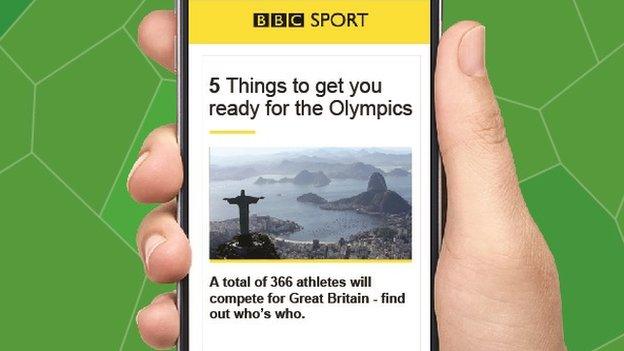Rio 2016 Olympics: Just how Great were Britain?
- Published
Great Britain smashed their medal target for the 2016 Olympics, achieved a succession of notable 'firsts' and caused a major stir by finishing second in the table, above global powerhouse China.
Of the 366 athletes that went to the Rio Games for Team GB, 130 of them - just over 35% - returned with a medal, including every member of the 15-strong track cycling team.
BBC Sport looks at Britain's Brazilian exploits in detail:
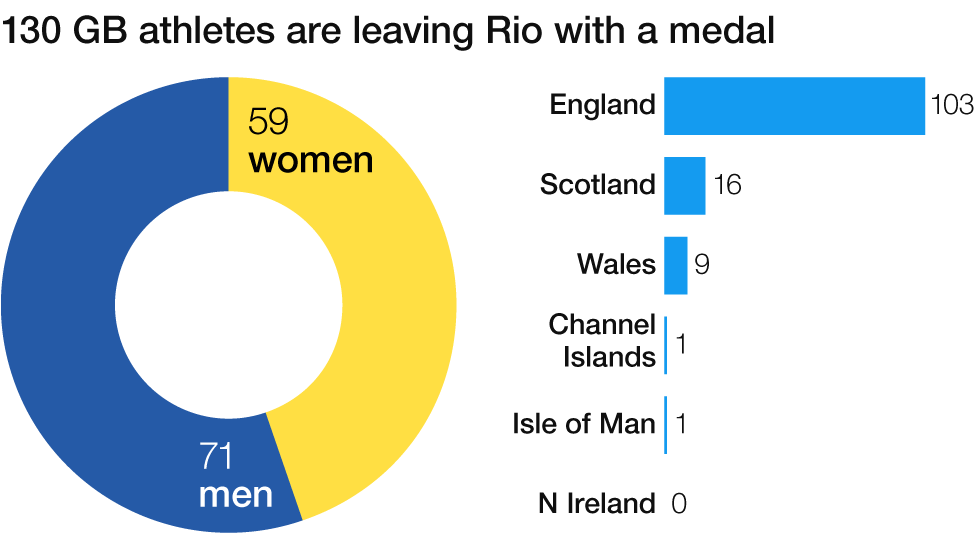
A medal in 19 sports
Of 31 sports, GB finished on the podium in 19 - a strike rate of just over 61%. That percentage is even better if you remove the six sports - basketball, football, handball, volleyball, water polo and wrestling - Britain were not represented in. Then it jumps to 76%.
The United States won medals in 22 sports, including 16 swimming golds.
In terms of golds, GB were way ahead of the pack, finishing with at least one in 15 sports, more than any other country, even the United States.
GB dominated track cycling, winning six of 10 disciplines and collecting 11 medals in total, nine more than the Dutch and Germans in joint second.
GB also topped the rowing table, with three golds - one more than Germany and New Zealand - and were third in gymnastics, behind the US and Russia.
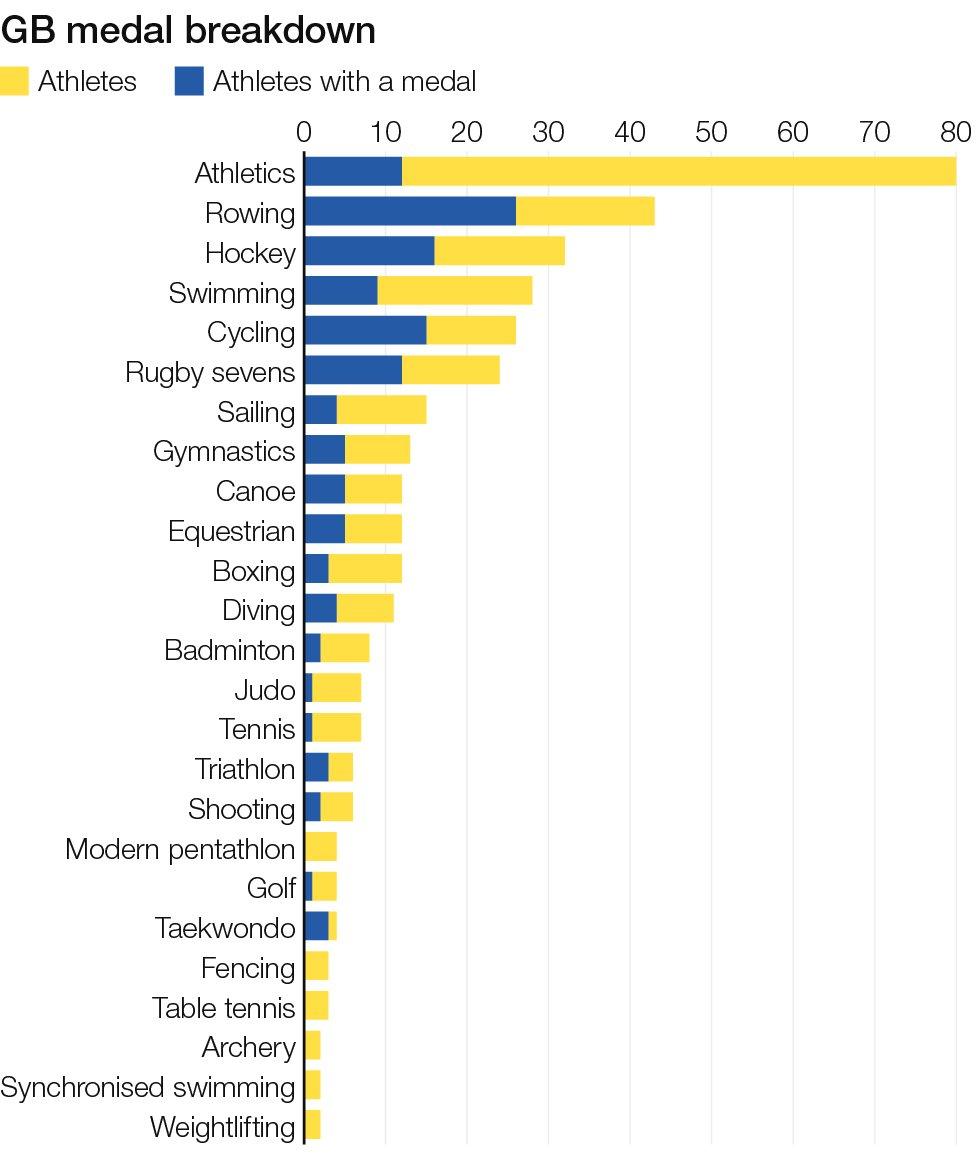
Some notable firsts
Adam Peaty claimed GB's first gold of the Games, winning the 100m breaststroke in a world record time on day two.
A first gold medal in men's gymnastics thanks to Max Whitlock in the floor exercise. Less than two hours later, he won pommel horse gold.
Jack Laugher and Chris Mears claimed GB's first ever diving Olympic gold by winning the men's 3m synchronised springboard.
Mark Cavendish finally claimed his first Olympic medal, adding a silver in the omnium to his multitude of honours achieved on the road.
Bryony Page won a silver in the trampoline, Britain's first medal in the event following its introduction at the 2000 Games in Sydney,
It's the first time Welsh competitors have won four gold medals at a single Games. Those came courtesy of Jade Jones (taekwondo), Hannah Mills (sailing), Owen Doull (cycling) and Elinor Barker (cycling).
Sophie Hitchon claimed Britain's first ever medal in the women's hammer.
Olympic heroes
Track cyclist Jason Kenny was the most successful Briton in Rio, winning three golds to take his tally to six.
Laura Trott, who will marry Kenny in September, became GB's most successful female Olympian, winning two golds in the velodrome to take her tally to four.
Sir Bradley Wiggins became the first Briton to win eight Olympic medals with victory in the team pursuit.
Rower Katherine Grainger's silver in women's double sculls made her the first British woman to win medals at five consecutive Olympics.
Mo Farah successfully defended not one but two Olympic titles, winning both the 5,000m and 10,000m.
Whitlock's success in the floor exercise and the pommel horse was GB's first double gold in a single day since rower Hugh Edwards in 1932.
At 58, show jumper Nick Skelton became an Olympic gold medallist 16 years after breaking his neck, which prompted a brief retirement.
Amy Tinkler, 16, became Britain's youngest medal winner since swimmer Sarah Hardcastle, who was 15 when she won a silver and bronze in 1984.
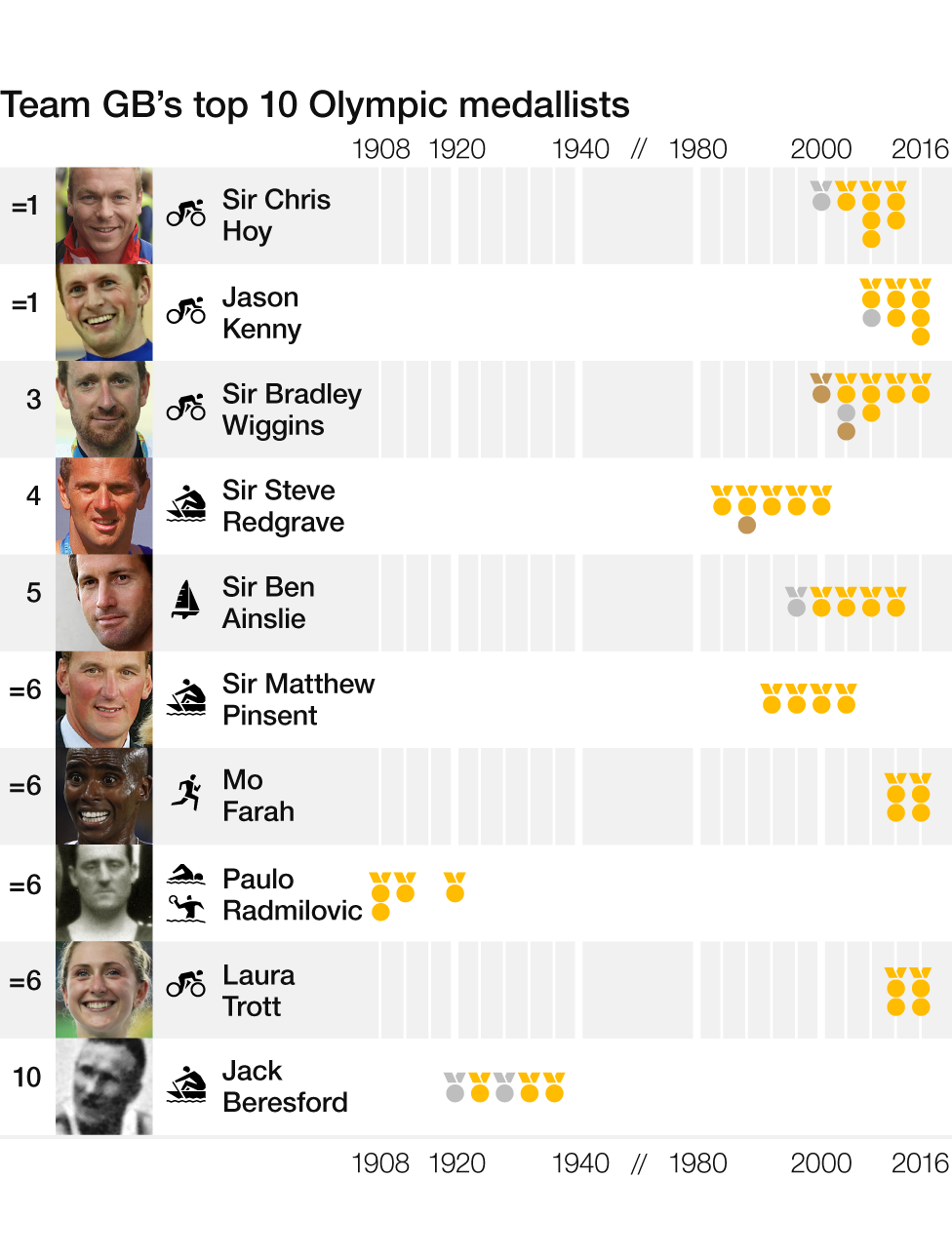
Successful defences
Alistair Brownlee, men's triathlon
Charlotte Dujardin, equestrian, individual dressage
Mo Farah, athletics, 10,000m and 5,000m
Jade Jones, taekwondo, women's -57kg
Jason Kenny, track cycling, men's individual sprint and keirin
Andy Murray, tennis, men's singles
Heather Stanning and Helen Glover, rowing, women's pair
Laura Trott, track cycling, women's omnium
Nicola Adams, boxing, women's flyweight
Winning runs
GB's rowers claimed a fifth consecutive Olympic title in the men's four.
GB's track cyclists made it three straight titles in both the men's team sprint and the men's team pursuit.
Sailor Giles Scott made it five straight wins in the Finn class, building on the 2000 success of Iain Percy and the three golds won by Sir Ben Ainslie.
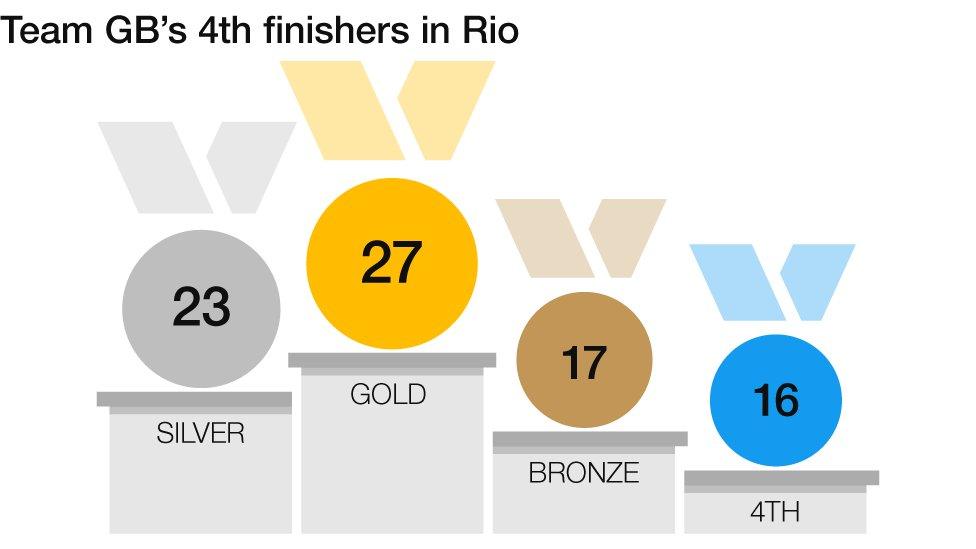
Velodrome victories
GB's tally of six golds continued their amazing success in track cycling, in which they have won 20 of the 30 golds on offer over the past three Games.
Of those wins, 12 have come in individual races - to Sir Chris Hoy (3), Kenny (3), Trott (2), Victoria Pendleton (2), Sir Bradley Wiggins and Rebecca Romero.
Such success has made cycling GB's top sport by a wide margin, with 25 golds from the past five Olympics, almost double the amount rowing - Britain's second-best sport over the period - has collected.
Rowing was GB's best-funded sport in the last Olympic cycle, awarded £32.6m by UK Sport. Cycling was second, receiving £30.2m.
Medal targets
UK Sport spent £274.5m of National Lottery money funding Olympic sports for the Rio Games and set a comprehensive list of medal targets for each one.
Despite winning three golds and two silver medals, rowing fell one short of its minimum medal target of six for Rio 2016.
It was one of two sports that failed to live up to expectations, with GB's modern pentathletes failing to win a medal after being set a minimum target of one.
Cycling exceeded UK Sport's goals for Rio, winning 12 medals - six of them gold - to beat the maximum target of 10 it was set.
Three other sports - diving (target maximum 2; actual 3), gymnastics (5; 7) and swimming (5; 6) - beat the targets they were set.
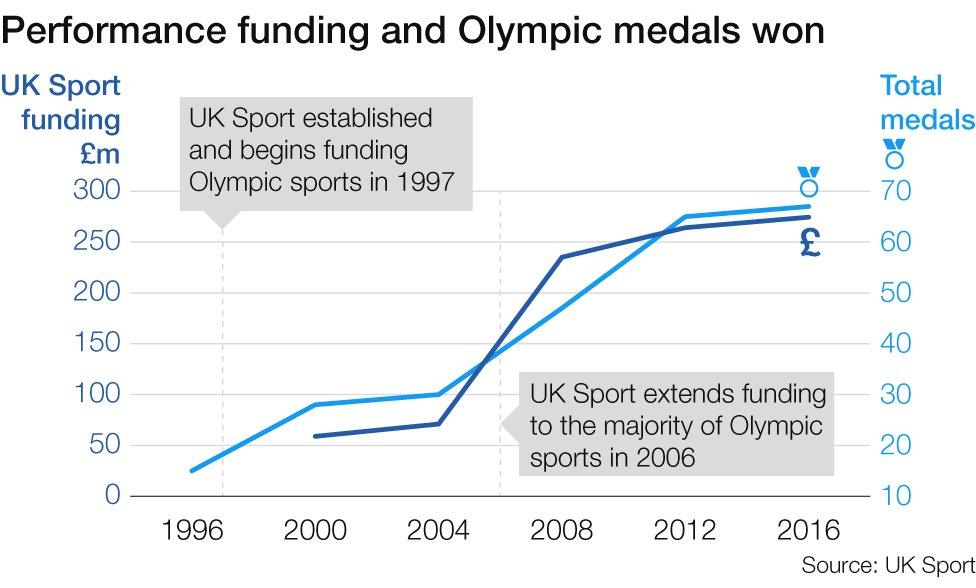
Bouncing back
In 1996, GB won a solitary gold, with Sir Steve Redgrave and Sir Matthew Pinsent winning the men's coxless pair in Atlanta.
The advent of UK Sport's National Lottery-funded World Class Performance Programme in 1997, external was the first step in helping Britain achieve extraordinary success in subsequent Olympics.
In 2006, the year after London won the right to host the 2012 Games, UK Sport became responsible for all performance funding, which is reflected in figures that have risen from just under £60m for Sydney to the current total for Rio.
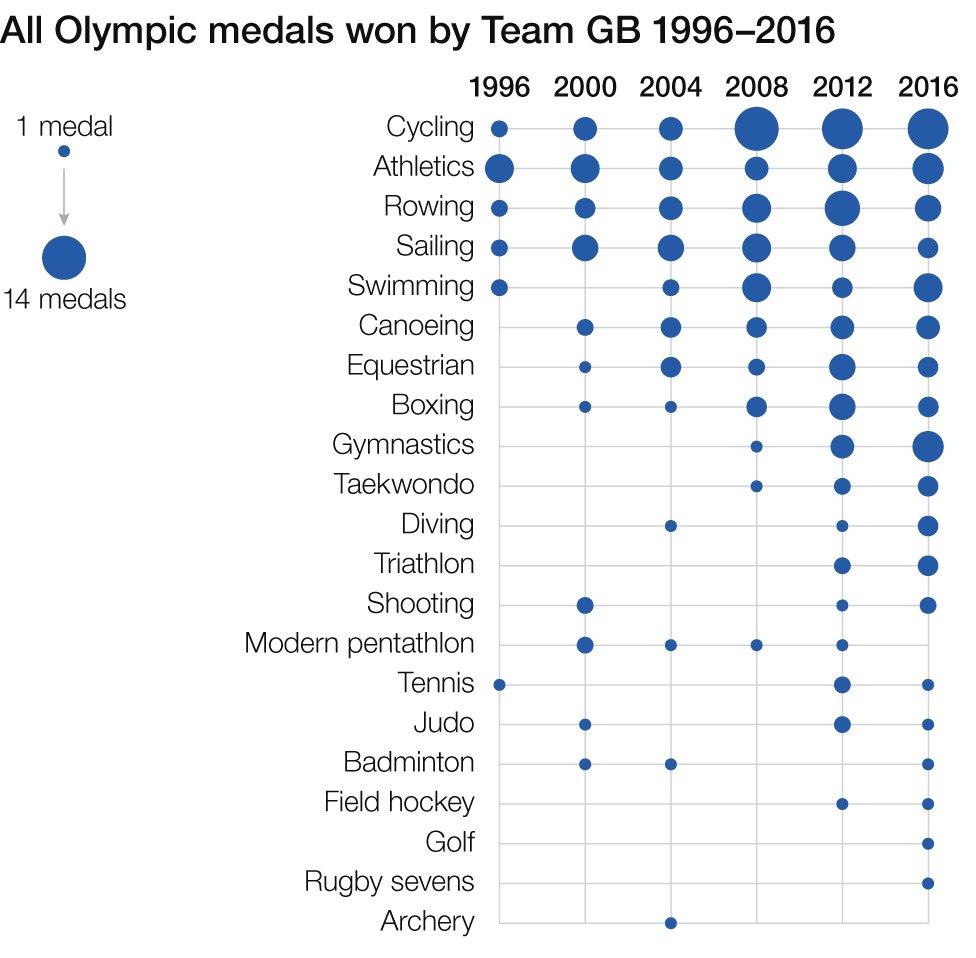

- Published21 August 2016
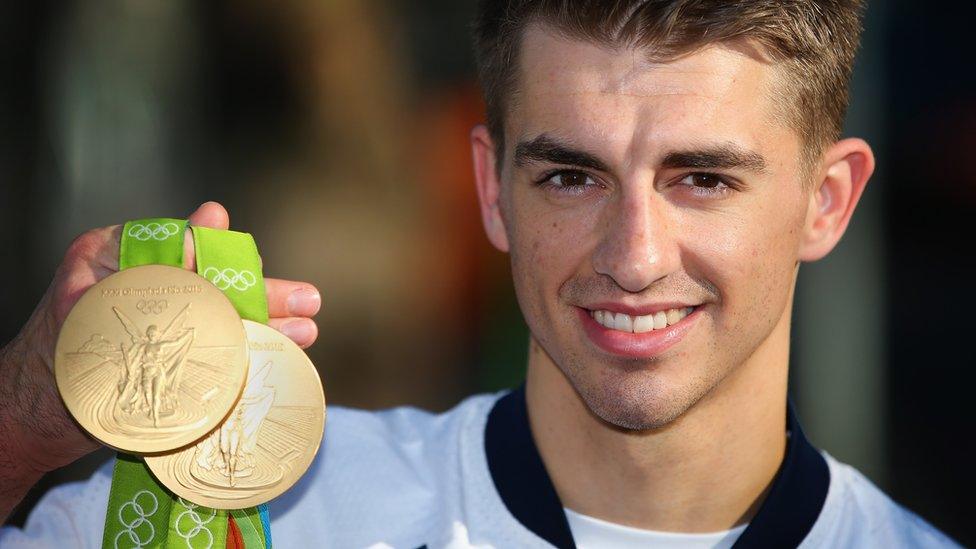
- Published8 August 2016
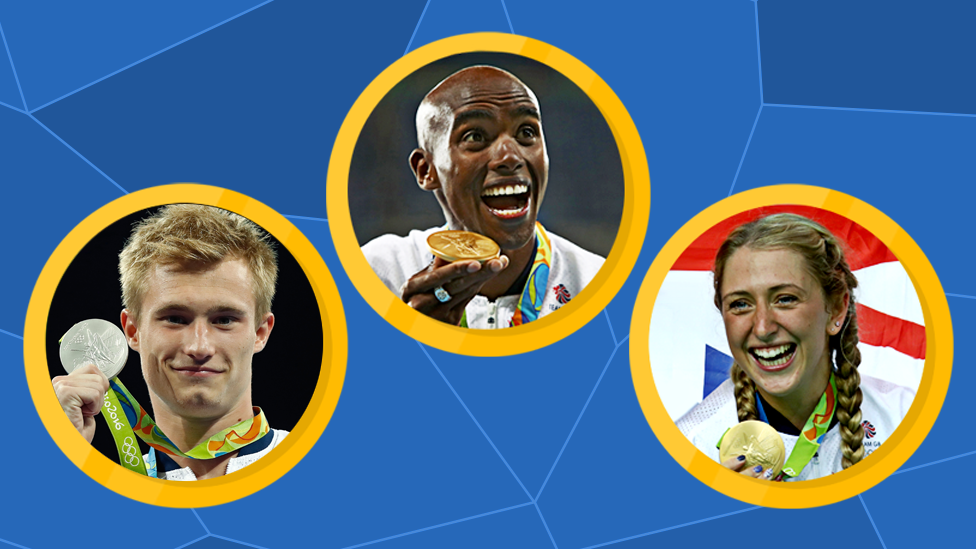
- Published19 July 2016
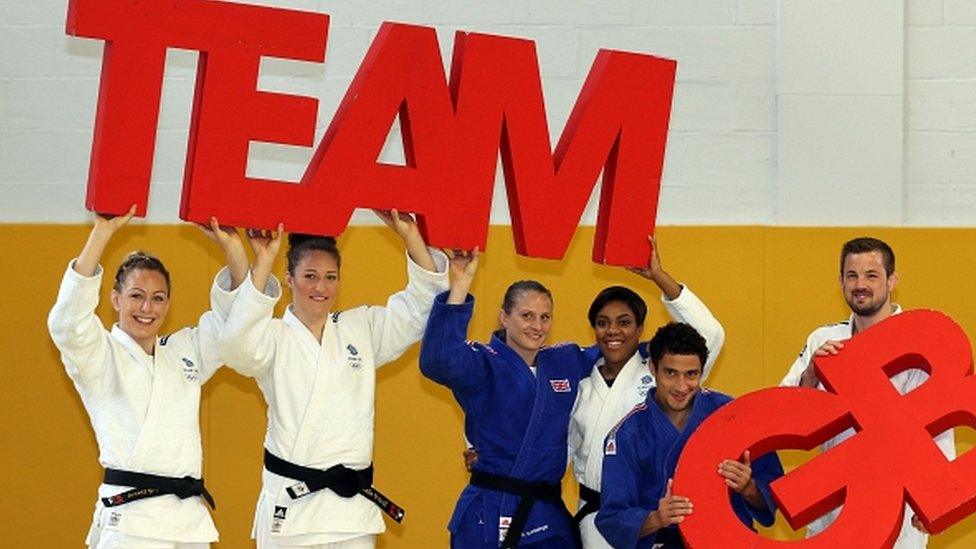
- Published3 August 2016
